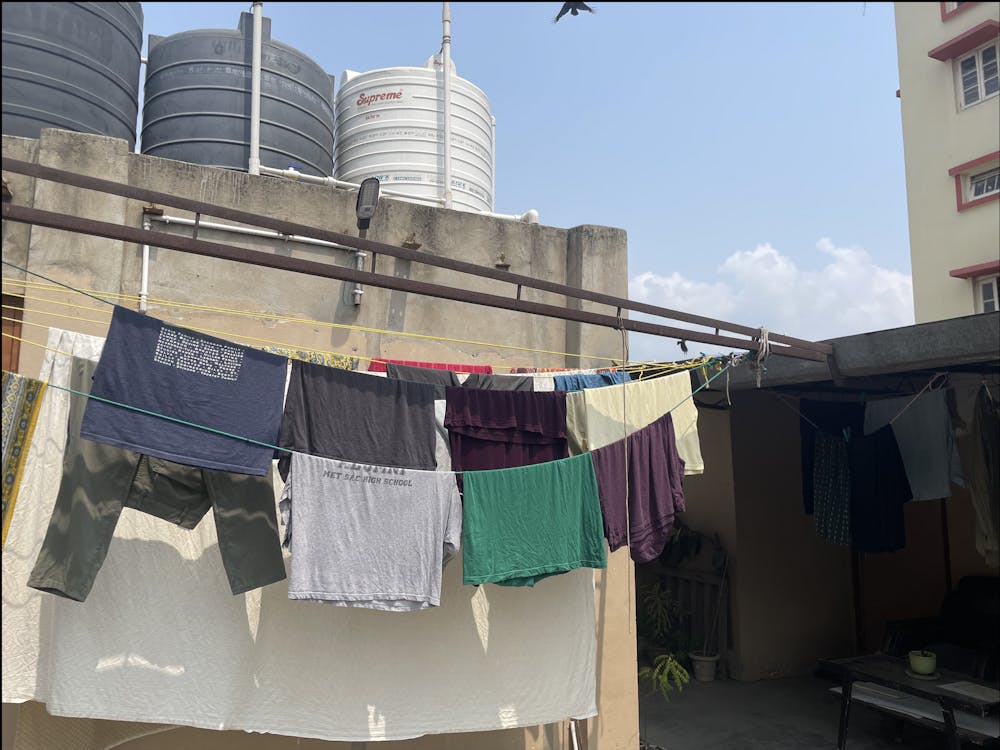What does it take to get to Malaysia?
That’s the question the cleaning guy, Vikky, asked me when I got back from a week in Kuala Lumpur. Do you need a passport? A visa?
I was staying at a small guest house in Calcutta, in an alley that welcomed swarms of Catholic volunteers to the Mother House of the Missionaries and tourists there to see Mother Teresa’s tomb.
I had been gone for a week because my research had run dry and because we had planned to go with my mom. Flights to Malaysia will never be cheaper, I thought.
I saw Vikky again on the roof as I hung my laundry up on the clotheslines. He still had Malaysia on the mind.
Vikky told me he had never, in his 29 years of life, left Calcutta. Not only had he never left Calcutta, but he hadn’t seen much of the city that I had experienced. He had never been to many of the cafes and establishments I had frequented in the city; for many Indians, a $4 coffee in an air-conditioned shop with an illustriously designed menu is a luxury that will forever remain inaccessible.
Weeks earlier, I had the left door open while I blared the AC full blast. Vikky had asked me if he could sit on the ground in the hallway while the door was ajar. Of course he could, I told him, though he refused when I invited him in.
On the rooftop, Vikky told me his family still lives in a slum. There’s no running water, and they have to buy water to cook with. To bathe, he goes out and finds a streetside shower or water pump. His mother still works several jobs cooking and cleaning in middle class family’s homes. Vikky always wanted to go to school, but with what money?
I didn’t know what to say, and I still don’t. Here I had booked a flight and hopped on a plane a couple days later, scanned my American passport at the airport and stayed in a tower with a rooftop pool and view of the skyline lit up at sunset.
I spent the entire summer paralyzed by thoughts of what I had done to deserve the life I had. I’ve spent my years at Notre Dame traveling the globe and coming back to a dorm — albeit one of the ugliest — that shares a campus with the Morris Inn and a dome gilded with gold.
But talking to Vikky, I did remember something. My father had grown up in a slum, under a tin roof that his family had raised illegally. It’s not a conversation I’ve had with him many times
The answer to the question of my privilege never did materialize. In the years before, I had formulated a written-for-the-movies sob story; the dead mom, the growing up in a hotel full of drug addicts above strip clubs and a litany of other pages in the script. My life was perpetually tortured by watching my friends pick up calls from their mothers and retreating from the room to feel bad about myself.
Like many before me, I have decided to be temporarily content in the idea that I have been given something special and that without forgetting the millions like Vikky, I must do the best I can with it. Cliche, perhaps. We don’t deserve anything we receive, really, and so the question is a fruitless endeavor. These gifts have come to us, and we’d be ingrates to leave them on the doorstep.
As I stood leaning over the edge of Notre Dame Stadium this weekend, I thought once more about what I had been given, this time particularly thinking about America. In times like this, it seems that everyone, the patriots and the radicals alike, have an apocalyptic vision of what our country is actually like. It’s stupid, heartless, fallen, failing and lost.
But it is in America that my family went from a man who grew up in a slum to his son who writes this for you. In America, we have our problems. Real, loud ones. But nowhere else is it as possible to redeem the sweat and blood of your forbearers. My life reflects a debt to my parents, to God, to many (though not all) of the people I’ve encountered in the last four years. But it is also hugely indebted to America, a country where Notre Dame felt the need to take a chance on me. A country where people are unjustifiably kind at so many moments, to a degree I’ve never experienced in most other places around the world.
An American doesn’t need a visa to enter Malaysia. And if you have the chance, go. But sitting here at Our Lady’s University, I’m reminded of all the privileges afforded by the accident of my birth in this country beyond visa agreements. I don’t deserve to be this lucky. And yet I am.










